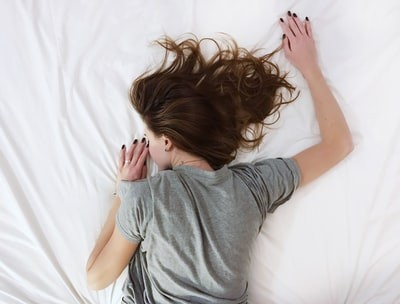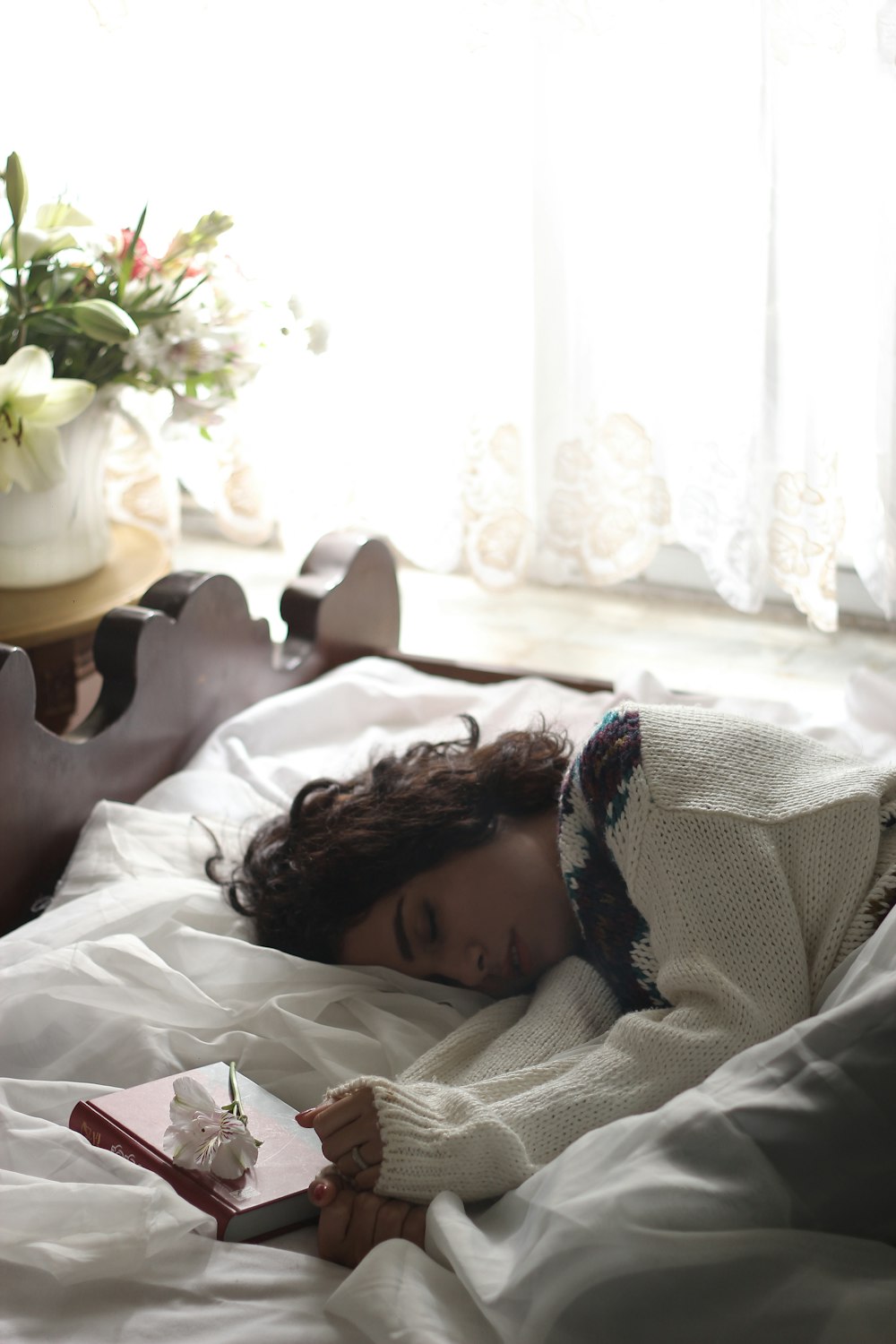A good night’s sleep is just as important as regular exercise and a healthy diet. A good night’s sleep is one of the most important things to do if you want to optimize your health or lose weight.
Here are evidence-based tips 12 Tips to Sleep Better at Night for getting better sleep.
Page Contents
1. Increase your exposure to bright light during the day
Your body has a natural time clock known as the circadian rhythm. It affects your brain, body, and hormones, helping you stay awake, and telling your body it’s time to sleep. Bright, natural light during the day helps maintain a healthy circadian rhythm. This not only improves daytime energy but also improves the quality and duration of a night’s sleep
In people with insomnia, exposure to bright light during the day improved the quality and duration of sleep. In addition, the time it takes to fall asleep has been reduced by 83%.
2. Reduce exposure to blue light at night
Exposure to light during the day is beneficial, but exposure to light at night has the opposite effect. This, in turn, is due to its effect on the circadian rhythm, which leads the brain to believe that it is still daylight. This will reduce hormones like melatonin, which will help you relax and sleep well. Blue light emitted from electronic devices such as smartphones and computers is the worst in this regard.
There are several popular methods that you can use to reduce your nighttime exposure to blue light. These include:
- Wear glasses that block blue light.
- Download apps to block blue light on your laptop or computer.
- Install an application that will block blue light on your smartphone. They are available for iPhone and Android models.
- Stop watching TV and turn off bright lights 2 hours before bed.
3. Don’t drink caffeine at the end of the day
Caffeine has many benefits and is consumed by 90% of the US population. A single dose can improve focus, energy, and athletic performance.
However, when taken at the end of the day, caffeine can stimulate the nervous system and prevent the body from naturally relaxing during the night. Caffeine can keep the blood rising for 6-8 hours. So drink a lot of coffee after 3 p.m. to 3 p.m. It is not recommended, especially if you are sensitive to caffeine or have trouble sleeping.
4. Cut down on irregular or long naps
Short naps are beneficial, but long or irregular naps during the day can negatively impact sleep. Sleeping during the day can mess up your internal clock. In other words, you may find it difficult to sleep at night.
However, some studies show that people who are used to napping regularly during the day do not have poor quality sleep or a disturbed night’s sleep. If you nap regularly and sleep well, then there is nothing to worry about. The effect of a nap varies from person to person.
5. Try to sleep and wake up at specific times
Your body’s circadian rhythm works in a fixed loop after sunrise and sunset. The coordination of sleeping and waking times can contribute to long-term sleep quality.
If you have trouble sleeping, make a habit of waking up and going to bed at the same time. After a few weeks, you might not even need an alarm clock.
6. Take melatonin supplements
Melatonin is an important sleep hormone that tells the brain when to relax and lie down. Melatonin supplements are a very popular sleep aid. Melatonin, which is commonly used to treat insomnia, is one of the easiest ways to fall asleep faster.
Withdrawal symptoms were also not reported in any of the previous studies.
Melatonin is also helpful when traveling and adjusting to new time zones. Melatonin helps restore the body’s circadian rhythm. Some countries require a prescription for melatonin. Elsewhere, melatonin is widely available in stores or online. Take about 1-5 mg 30-60 minutes before bedtime. Start with a low dose, assess tolerability and increase slowly if necessary. Melatonin can alter your brain chemistry, so it’s a good idea to check with your doctor before using it.
7. Consider these other supplements
Some supplements, like the following, can relax you and help you fall asleep.
Glycine: Some studies have shown that taking 3 grams of the amino acid glycine improves the quality of sleep.
Valerian roots: Some studies suggest that valerian can help you fall asleep and improve the quality of your sleep. Take 500 mg at bedtime.
Magnesium: Magnesium, which is involved in more than 600 reactions in the body, can promote relaxation and improve the quality of sleep.
8. Don’t drink alcohol
Drinking a few cups at night can negatively affect sleep and hormones. Alcohol is known to cause or worsen sleep apnea, snoring, and disturbed sleep patterns. It also alters the production of melatonin at night. It plays an important role in the body’s circadian rhythm.
According to another study, nighttime alcohol consumption affected the circadian rhythm and reduced the natural nocturnal surge in human growth hormone (HGH), which has many other important functions.
9. Optimize the bedroom environment
Many people believe that the surroundings and the surroundings of the bedroom are important factors in getting a good night’s sleep.
These factors include temperature, noise, external lighting, and the location of the furniture.
To optimize your bedroom environment, try to minimize outside noise, lights, and artificial lighting from devices such as alarm clocks. Make sure your bedroom is calm, relaxing, clean, and fun.
10. Set the bedroom temperature
Body temperature and bedroom temperature also have a significant influence on the quality of sleep. You may have experienced it in the summer or in hot places, but it can be very difficult to get a good night’s sleep when it’s too hot.
Depending on your tastes and habits, around 20 ° C seems like a comfortable temperature for most people.
11. Don’t eat late at night
Eating late at night can negatively affect both the quality of sleep and the natural release of HGH and melatonin. But the quality and variety of late-night goodies can also have an impact.
12. Relax and clear your mind at night
Many people have a bedtime routine that helps them relax. Bedtime relaxation techniques have been shown to improve the quality of sleep and are another common way to treat insomnia.
Strategies include listening to relaxing music, reading books, bathing, meditating, deep breathing, and visualizing.




